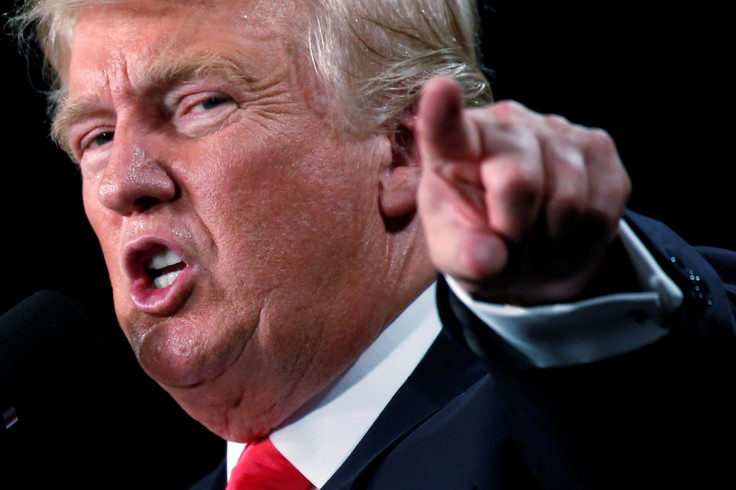Trump attacks China as Taiwan seeks to soothe anger from phone call with President-elect
Call was planned weeks in advance after Trump Organization travelled to Taiwan to scout luxury hotel site.

As President-elect Donald Trump attacked China on Twitter, Taiwan sought desperately to soothe the Asian superpower's anger over a phone call with the new leader of the United States.
The Asian superpower lashed out on the weekend after Trump took a phone call from the small island nation, throwing decades of diplomatic relations between the two into chaos. A US leader has not talked to a Taiwanese leader for nearly four decades.
Taiwan's China affairs minister urged the superpower to take a "calm attitude" Monday (5 December) to the 10-minute call Trump took from Taiwan President Tsai Ing-wen.
"The government values ties with (China) and the president has reiterated time and again that Taiwan will not go back to the old way of confrontation... I don't think there is an act of provocation," Chang Hsiao-yueh told reporters.
On Saturday China lodged an official complaint and "stern representations" with the Obama administration about the call. "The one China principle is the political basis of the China-US relationship," it said. These diplomatic norms were established by President Richard Nixon and Chairman Mao Tse-tung in 1972 when the US established that Taiwan is part of China.
Trump took to Twitter on Sunday suggesting China cannot dictate policy to the US and attacked the superpower for its policies. "Did China ask us if it was OK to devalue their currency (making it hard for our companies to compete)," he wrote, or "to build a massive military complex in the middle of the South China Sea? I don't think so!"
Did China ask us if it was OK to devalue their currency (making it hard for our companies to compete), heavily tax our products going into..
— Donald J. Trump (@realDonaldTrump) December 4, 2016
Trump also said that the US doesn't have an import tax on the superpower's goods. The US tax on Chinese goods, however, ranges from 2.5 to 3.5%.
In an interview on NBC's Meet the Press Sunday, Vice president-elect Mike Pence dismissed Chinese anger about the call as "a tempest in a teapot." He said that taking the call was nothing more than a "courtesy." Pence added that Trump's "agenda on the world stage" won't begin until after his inauguration 20 January and "we'll deal with policy at that time."
The call was, in fact, planned weeks in advance and Taiwan was on a list of leaders for Trump to reach out to. "Very early on, Taiwan was on that list," Stephen Yates, a national security official during the presidency of George W Bush and an expert on China and Taiwan, told the Washington Post. "Once the call was scheduled, I was told that there was a briefing for President-elect Trump," he said. "They knew that there would be reaction and potential blowback."
During the call Taiwan's leader Tsai said she hoped Trump "would continue to support more opportunities for Taiwan to participate in international issues."
It also emerged on the weekend that a representative of the Trump Organization met with Zheng Wencan, the mayor of the city of Taoyuan in Taiwan, about the possibility of investing in the city's airport expansion by building luxury hotels in September.
Beijing is not likely to forget both Tsai and Trump's dismissal of a long-established diplomatic rule forged decades ago.
"Beijing will not leave the matter at that and this could do Tsai more harm than good," Tang Shao-cheng, a political scientist at the National Chengchi University, told AFP, "such as prompting Beijing to get Taiwan's diplomatic allies to switch recognition."
© Copyright IBTimes 2025. All rights reserved.






















